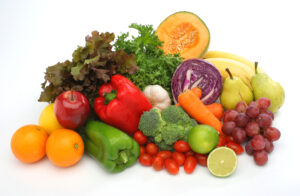Nutrition Needs For Older Seniors
Nutritional requirements vary according to age and gender. As you age, the foods and beverages that comprise a healthy diet may need to be modified somewhat from when you were younger. You’ll need less of some meals and more of others. As an older person, your eating habits will also change according to your gender: older males have different nutritional requirements than older women.
However, healthy eating habits do not alter much with age, mainly if you already follow a balanced diet. Be conscious of your own nutritional requirements and alter your food choices accordingly to ensure that your body gets what it needs for your health as you age. Some seniors may not know how to eat nutritious meals, but that is when 24-hour home care needs to be put in place. When you cannot be home for your senior 24-hour home care will be.
Seniors should also have a doctor they talk to regularly in case there are any major changes in diet, exercise, lifestyle, or anything else. It is important to have a team of professionals who can help your seniors thrive when they choose to live independently and not in a community. Unfortunately, you can’t always be there for them.
Here Is What To Put On Your Plate When You’re Over 65

24-Hour Home Care Galt, CA: Nutrition Needs
You’re undoubtedly aware that eating a balanced diet promotes your physical, mental, and social wellbeing. Without making healthy food and beverage choices, you increase your chance of developing chronic illnesses such as cardiovascular disease, type 2 diabetes, certain types of cancer, and even mental health problems such as anxiety and depression. A healthy diet also benefits socially – engaging with other people daily may help fight against loneliness and isolation.
Consume a variety of foods from the five food groups:
- A variety of colorful vegetables and legumes/beans
- Fruit
- Grain (cereal) foods, preferably wholegrain and high-fiber varieties
- Lean meats and poultry, fish, eggs, tofu, nuts, and seeds
- Milk, yogurt, and cheese, or their reduced-fat alternatives
Substitute foods rich in saturated fat with those high in polyunsaturated and monounsaturated fats. Substitute unsaturated fats such as oils, spreads, nut butter and pastes, and avocado for butter, cream, margarine, coconut, and palm oil.
Other Tips To Keep In Mind
Nutrition doesn’t change much when a senior enters their final stage in life. Every senior should maintain a healthy weight and focus on not losing muscle mass. It will be important to talk to doctors to determine if a senior needs to lose weight or gain weight because this will drastically impact what a senior should and should not eat.
Something that younger adults may not need to think about is their teeth. Things like nuts or hard vegetables may be too difficult to eat, and a senior will avoid those foods. Luckily there are other ways to consume these highly nutritious foods. Juicing or creating smoothies are also good ways to drink nutritious foods.
